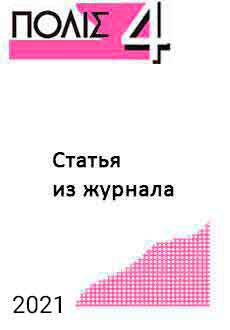Online shop of "Polis. Political Studies" Journal
We in the world, the world in us
Malakhov V.S., Letnyakov D.E. Religious Politics of Post-Soviet States: Between Path Dependence and Governmentality. – Polis. Political Studies. 2021. No. 4. P. 163-175. (In Russ.).
150 руб.
religious policy, church-state relations, secularism, church, Islam, post-Soviet space, Russia, path dependence, governmentality.
The subject of this article is the relationship between state and church in post-Soviet countries. The authors claim that the term “post-Soviet” is not a mere reflection of a chronological sequence, but is a concept with deep semantics. The nation states that came into being after the USSR collapsed in 1991 share a common institutional legacy. One of the manifestations of this legacy is their behavior in the religious field. The religious policies of the post-Soviet countries reveal significant similarities, despite the deep differences between the countries in terms of history and culture. In particular, the post-Soviet states belonging to the Islamic cultural realm demonstrate Soviet standards in their religious policy. However, the analytical identification of the “post-Soviet model” of secularism is not to imply blindness to differences in the strategies of specific states in managing religion. Addressing these differences, the authors single out three basic types of post-Soviet secularism: “authoritarian”, “neutral”, and “ambivalent”.
 English
English Русский
Русский

Reviews
There are no reviews yet.